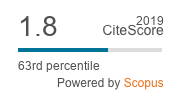Staffing policies of leading professional service firms
Abstract
Purpose: The aim of this study is to analyse the prevalence of the staffing policies associated with the characteristics of the two basic types of organisational configurations identified by Institutional theory (Professional Partnership and Managed Professional Business), or conversely, if they have been evolving as a consequence of contextual factors and trends.
Design/methodology/approach: Exploratory research was performed through the case study method. Six case studies were conducted in Spanish affiliates of leading multinational management consulting firms.
Findings: Our analysis revealed that the staffing policies and practices of the companies differ significantly. It was further deduced that the origin of companies and the practice of activities other than business consulting could influence their staffing policies. It is concluded that mixed models do exist nowadays and that the origin of companies largely determines their policies.
Research limitations/implications: Cultural factors among countries could influence HRM policies and practices. Furthermore, the size of companies could determine (or limit) the implementation of certain staffing policies. The study could be extended to a sample of consulting companies of various sizes and countries to enrich the results
Practical implications: For HR managers, knowing the staffing policies at these major companies is a benchmark of HRM effectiveness to be applied to their own companies. In particular, these cases are relevant for other knowledge intensive organizations.
Originality/value: The paper provides current empirical evidence on the HRM staffing policies of leading consulting firms and their evolution
Keywords
DOI: https://doi.org/10.3926/ic.1370
This work is licensed under a Creative Commons Attribution 4.0 International License
Intangible Capital, 2004-2025
Online ISSN: 1697-9818; Print ISSN: 2014-3214; DL: B-33375-2004
Publisher: OmniaScience








